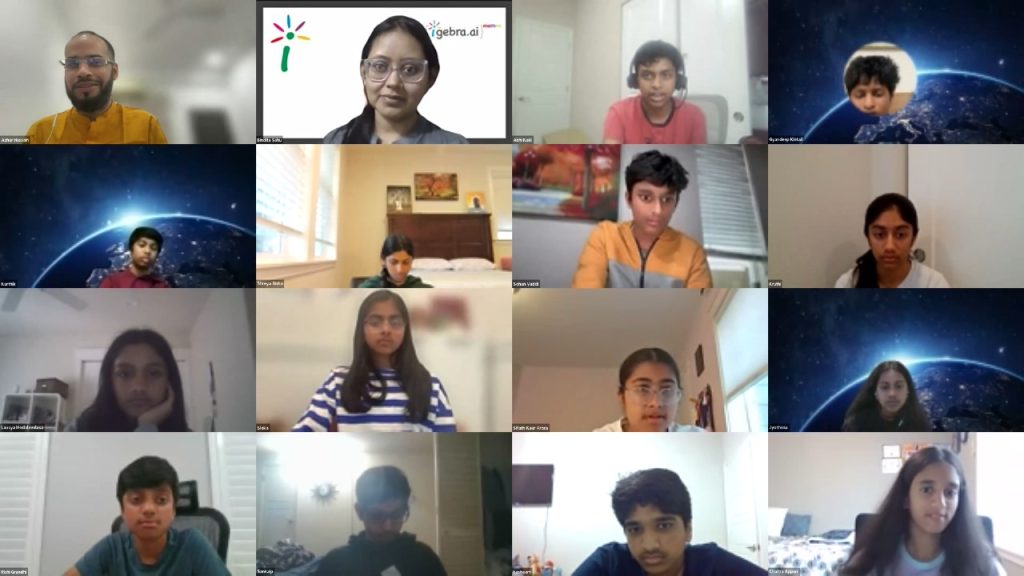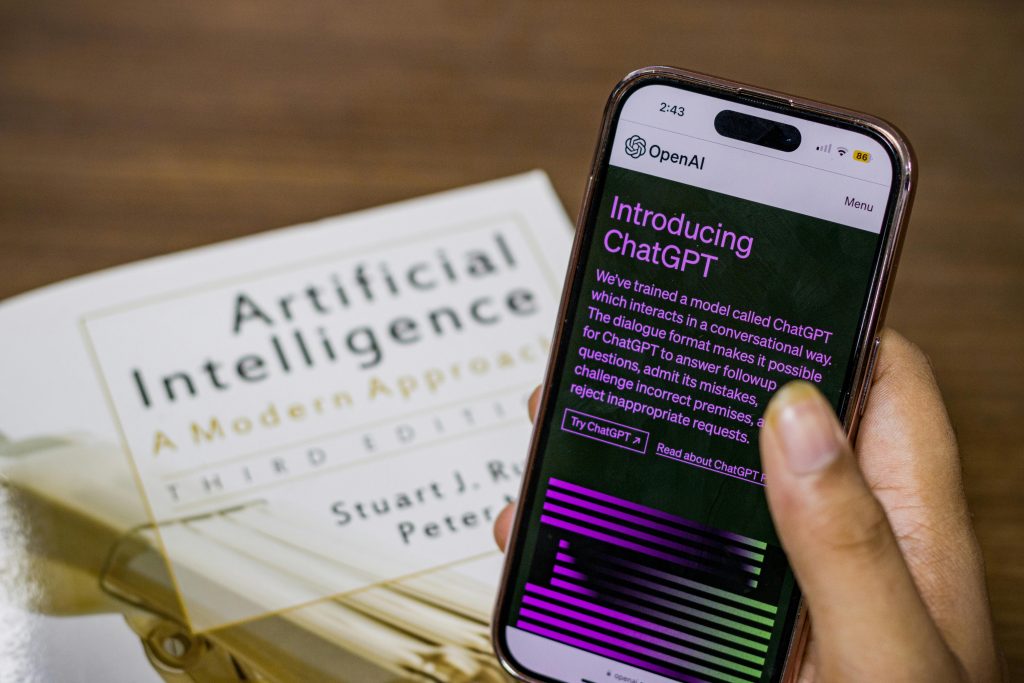What Happens If We Don’t Teach the Application of Generative AI to Our Children?

In the rapidly evolving landscape of technology, Artificial Intelligence (AI) has emerged as one of the most transformative forces of our time. From enhancing daily conveniences to revolutionizing entire industries, AI’s impact is profound and far-reaching. Among the myriad of AI technologies, Generative AI stands out for its ability to create – it can generate text, images, music, and even entire virtual environments. This capability not only augments human creativity but also opens up new realms of possibilities in education, entertainment, healthcare, and beyond. As the world becomes increasingly driven by AI, it is crucial to consider how we are preparing the next generation to navigate and thrive in this new reality. The ability to understand and apply Generative AI is rapidly becoming a fundamental skill, much like reading, writing, and arithmetic. However, there is a significant risk that without proactive education and exposure, many children will grow up without the essential knowledge and skills needed to harness the power of this technology effectively. Imagine a future where AI tools are as commonplace as smartphones and computers, where children use AI to aid their learning, fuel their creativity, and solve complex problems. Now, contrast this with a scenario where children are merely passive consumers of AI technology, lacking the understanding and skills to engage with it meaningfully. The gap between these two futures is vast and has profound implications for individual opportunities, societal progress, and ethical standards. In this blog, we will explore the critical reasons why teaching children about the applications of Generative AI is not just beneficial but necessary. 1. Lagging Behind in a Competitive World Generative AI is already influencing job markets globally, with applications in fields as diverse as healthcare, finance, marketing, and entertainment. If children are not exposed to Generative AI, they risk falling behind their peers who are better prepared to navigate and leverage these technologies. This knowledge gap could result in limited career opportunities and reduced competitiveness in an increasingly AI-driven economy. For instance, AI proficiency is becoming a desired skill in many job descriptions, and without this knowledge, future job seekers might find themselves at a disadvantage. 2. Missed Opportunities for Creativity and Innovation Generative AI is not just about technology; it’s also a catalyst for creativity and innovation. AI can assist children in creating music, art, stories, and even game designs, pushing the boundaries of their imagination. Without understanding how to use these tools, they miss out on opportunities to explore new creative processes and contribute to the arts and sciences in novel ways. For example, a child interested in art could use AI to experiment with different styles and techniques, learning more about artistic expression in the process. 3. Lack of Critical Thinking Skills Teaching children about Generative AI goes beyond technical skills; it also involves fostering critical thinking and ethical considerations. Understanding how AI works, its potential biases, and its impact on society helps children develop a critical approach to technology. Without this knowledge, they might become passive consumers of AI-generated content, lacking the ability to question and critically analyze the technology they use. For example, understanding AI bias can help them recognize and challenge unfair algorithms, promoting a more equitable society. 4. Reduced Digital Literacy In a world where digital literacy is becoming as important as traditional literacy, Generative AI plays a crucial role. Knowing how to interact with AI, from chatbots to AI-driven search engines, is essential for effective communication and information retrieval. Children who are not taught about Generative AI might struggle with digital literacy, making it harder for them to access and evaluate information in the digital age. For example, they might not be able to differentiate between AI-generated content and human-created content, leading to misinformation. 5. Unprepared for Ethical and Privacy Challenges Generative AI raises significant ethical and privacy issues. For instance, AI-generated deepfakes can be used maliciously, and AI algorithms can perpetuate biases if not properly managed. By educating children about these challenges, we prepare them to navigate and address ethical dilemmas and privacy concerns. Without this education, children may become vulnerable to misinformation and unethical AI practices. For instance, understanding the implications of data privacy can help them protect their personal information online. 6. Limited Problem-Solving Abilities Generative AI can be a powerful tool for problem-solving. For example, AI can help design efficient algorithms, create new products, and even assist in scientific research. By understanding how to harness AI, children can develop advanced problem-solving skills, essential for tackling complex real-world challenges. Without this knowledge, their ability to innovate and solve problems effectively is diminished. For instance, a child interested in engineering could use AI to simulate and test various designs, enhancing their understanding and capabilities. 7. Disconnect from Technological Advances As AI continues to advance, those without knowledge of Generative AI risk being disconnected from significant technological progress. This disconnect can lead to a lack of engagement and participation in societal and technological discussions, further widening the gap between those who understand AI and those who do not. For example, they might be less likely to participate in discussions about AI ethics or the impact of AI on jobs, limiting their ability to influence future developments. Final Thoughts The application of Generative AI holds immense potential for the future, and it is crucial that we prepare our children to understand and use this technology responsibly and creatively. By integrating AI education into their learning journey, we equip them with the skills to thrive in a tech-driven world, foster their creativity, and develop their critical thinking abilities. Conversely, failing to do so could leave them at a significant disadvantage, both personally and professionally. Let us commit to making Generative AI an integral part of our children’s education, ensuring they are well-prepared to lead and innovate in the future. Fostering AI literacy and responsible use of technology requires collaborative efforts from parents, educators, policymakers, and society at large. By providing resources and support for parents to engage with their children on AI topics,
The 3 Day GenAI Creator Workshop for Kids in the US: An Initiative by TTA, Powered by {igebra.ai}

In the vibrant tapestry of technological education, a remarkable initiative woven by the Telangana American Telugu Association has captured the imagination of young minds across the United States. This visionary project, executed with flair by {igebra.ai}, a U.S.-based AI research, development, and education powerhouse, took the form of the GenAI Creator Workshop. Held from May 3rd to 5th, 2024, this free, online workshop opened a portal for children to explore the fascinating world of generative AI by creating songs and 3D animations. It was not merely a course but an adventure into the limitless potential of AI, designed to ignite curiosity and foster innovation among the leaders of tomorrow. The workshop’s core mission was to peel back the curtain on the mysteries of generative AI, enabling children to harness these advanced tools to create something truly unique. Beyond the technical skills, the program sought to plant seeds of inspiration, encouraging participants to ponder the latest tech advancements and consider their future roles in shaping this dynamic field. It was an invitation to dream big, envisioning new possibilities that extend beyond the current horizons of technology. The workshop catered to two distinct groups: Group A for elementary school students and Group B for middle and high school students. Each group participated in three meticulously planned workshops focusing on different aspects of generative AI tools and their applications. For instance, Group A was introduced to video song creation using tools such as Suno AI, Midjourney, RunwayML, and ClipChamp. In contrast, Group B explored the creation of animated video stories through platforms like ChatGPT, Midjourney, Pika Labs, Eleven Labs, and ClipChamp. These sessions were supplemented by support sessions to assist participants in completing their projects, ensuring a hands-on, supportive learning environment. Following the enlightening workshops, the participants were tasked with submitting their creations for the first round of competition. This exciting phase was designed to showcase the skills and creativity they had honed during the workshops. From this initial submission, twelve semi-finalists were selected to advance to the grand finale. This culminating event will take place in a hybrid format, combining both virtual and in-person elements, at the prestigious Seattle Convention Center on May 25th and 26th. This hybrid approach ensures that all participants, regardless of their location, have the opportunity to engage and showcase their innovative projects to a wider audience. The true spirit of the workshop was reflected in the enthusiastic collaboration among participants, mentors, and organizers. It was a collective endeavor that deserved a standing ovation, with parents and mentors playing crucial roles in nurturing the talents and ambitions of these young creators. Special recognition goes to Vamshi Reddy and the Telangana American Telugu Association Team, whose support was instrumental in bringing this idea to life. Under the guidance of visionaries like Kalyan Kaki and the expert chairmanship of Avinash Gupta Kolluri, the workshop was steered towards success. The proactive co-chairs, Sudhir Dachepalli, Praveen Paluri, and Naresh Kumar Penugonda, along with the GenAI Extended Team members like Kiran Kaki and Satish Chigullapally, contributed significantly to the smooth execution of the event. The wisdom of the judging panel, including Ganesh Gella and Praveen Kashimsetty, enriched the learning experience, providing critical feedback and insights. A round of applause is also due for the dedicated {igebra.ai} team including Srini Vemula, the founder of {igebra.ai}, Chiranjeevi Maddala, Director Product Development & Marketing, for their unwavering support with trainers Azhar Hussain and Karuna Jain, whose creativity and commitment were pivotal in nurturing the next wave of tech innovators. The GenAI Creator Workshop stands as a beacon of innovation and education, preparing our children for a future where they not only adapt to new technologies but also drive them. As we applaud the achievements of these young creators and their mentors, we look forward to more such initiatives that foster creativity and technological fluency among the future stewards of our world. Let’s continue to celebrate and support such transformative educational endeavors that promise to shape a brighter, more inventive future.
Best Strategies for the Responsible Use of Generative AI in Education

Employing Generative AI in education can enhance learning outcomes, strengthen teacher performance and wellness, and foster equity in educational practices. Conversely, lacking such oversight, there exists the potential for privacy violations, inconsistent disciplinary procedures, and inefficient application of AI technologies in educational settings. What is Generative AI? Generative AI refers to a subset of artificial intelligence technologies that can generate new content, ranging from text and images to music and code, based on the patterns and information it has learned from training data. This technology utilizes advanced machine learning models and algorithms, particularly those based on neural networks such as Generative Adversarial Networks (GANs) and transformer models like OpenAI’s GPT (Generative Pre-trained Transformer) series. How Generative AI Enhances Learning Challenges and Ethical Considerations of Using Generative AI in Education 7 Strategies for Responsibly Using Generative AI in Education Here are seven Strategic guidelines that educators, policymakers, and educational leaders should consider when establishing protocols to ensure the responsible and effective implementation of AI in education. These seven Strategies offer a structure for the responsible and effective use of AI in education. By following these guidelines, educators and policymakers can take advantage of AI’s benefits while tackling its challenges, ensuring an approach that is balanced, ethical, and inclusive. Conclusion As we navigate the evolving landscape of education technology, it’s clear that AI holds transformative potential for enhancing learning environments, personalizing educational experiences, and streamlining administrative tasks. However, the integration of AI into education comes with its own set of challenges and ethical considerations, particularly regarding data privacy, equity, and the preservation of human oversight. By adhering to the strategic guidelines outlined in this blog, educators and policymakers can ensure that AI is used responsibly and effectively. As AI technologies continue to develop, it will be crucial to remain vigilant and adaptable, continuously assessing their impact and refining their use to serve the best interests of all students. Embracing AI in education is not just about leveraging new tools, but about fostering an inclusive, equitable, and enriched learning landscape for future generations.
